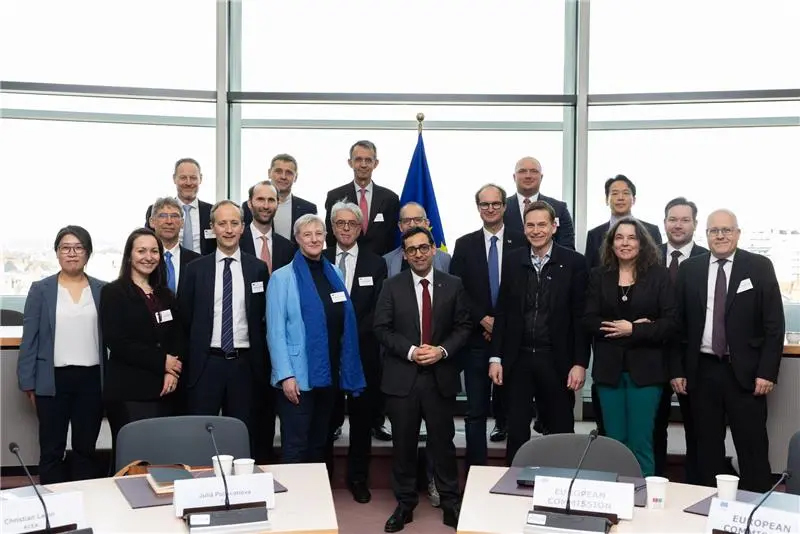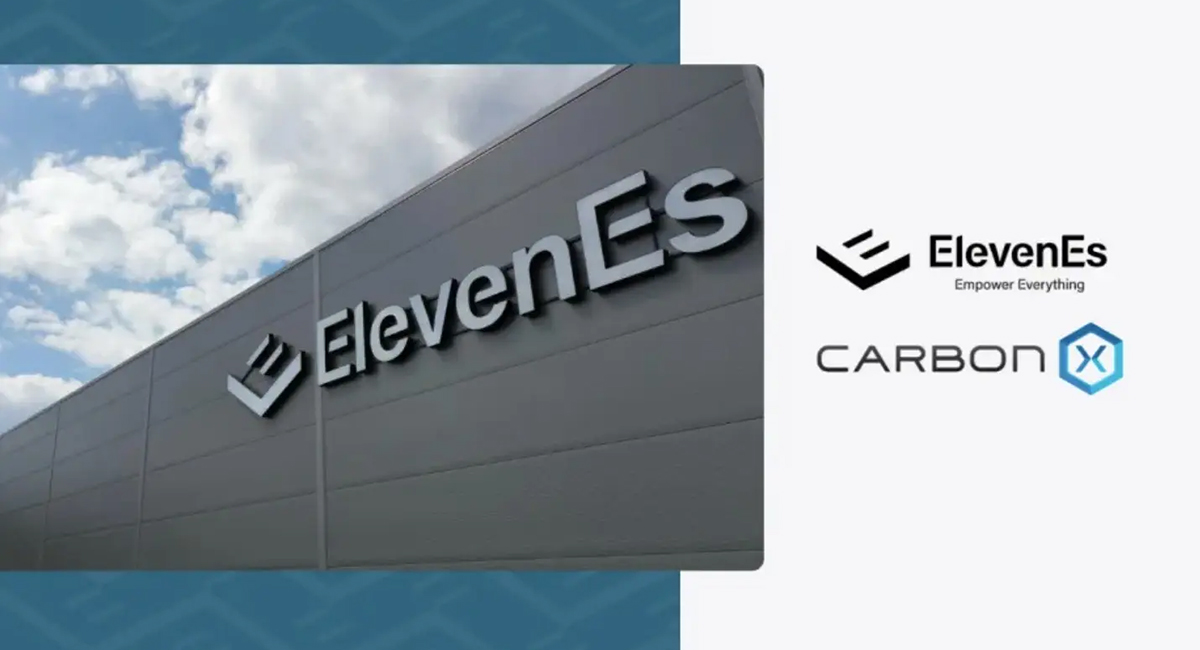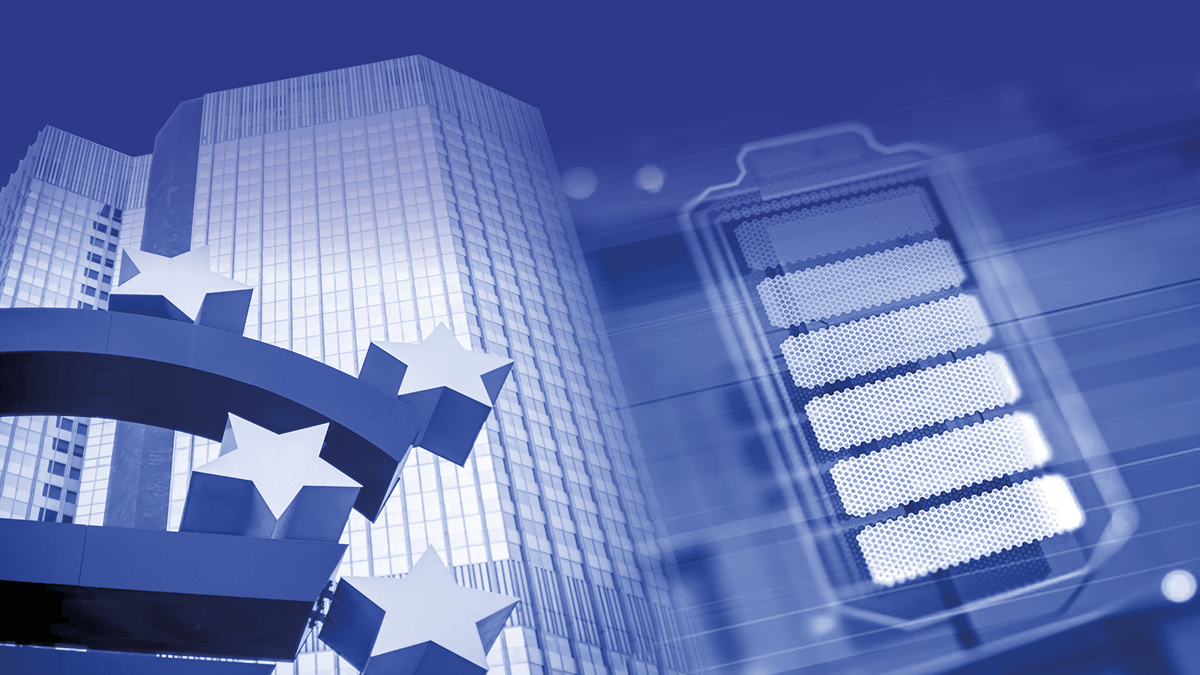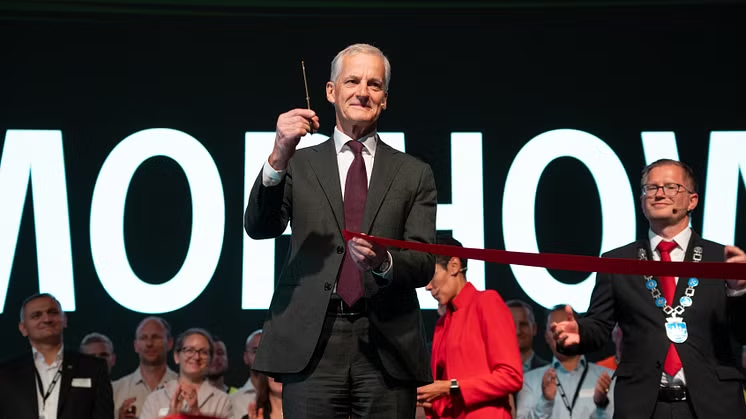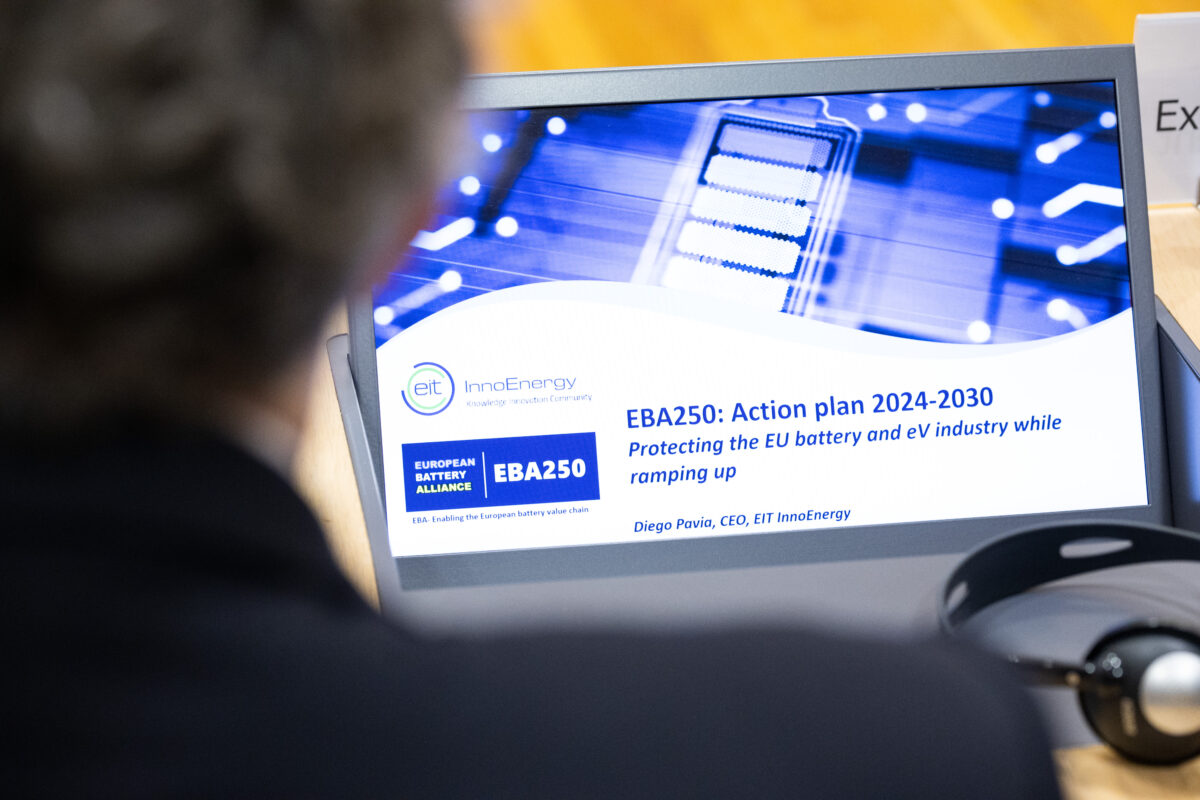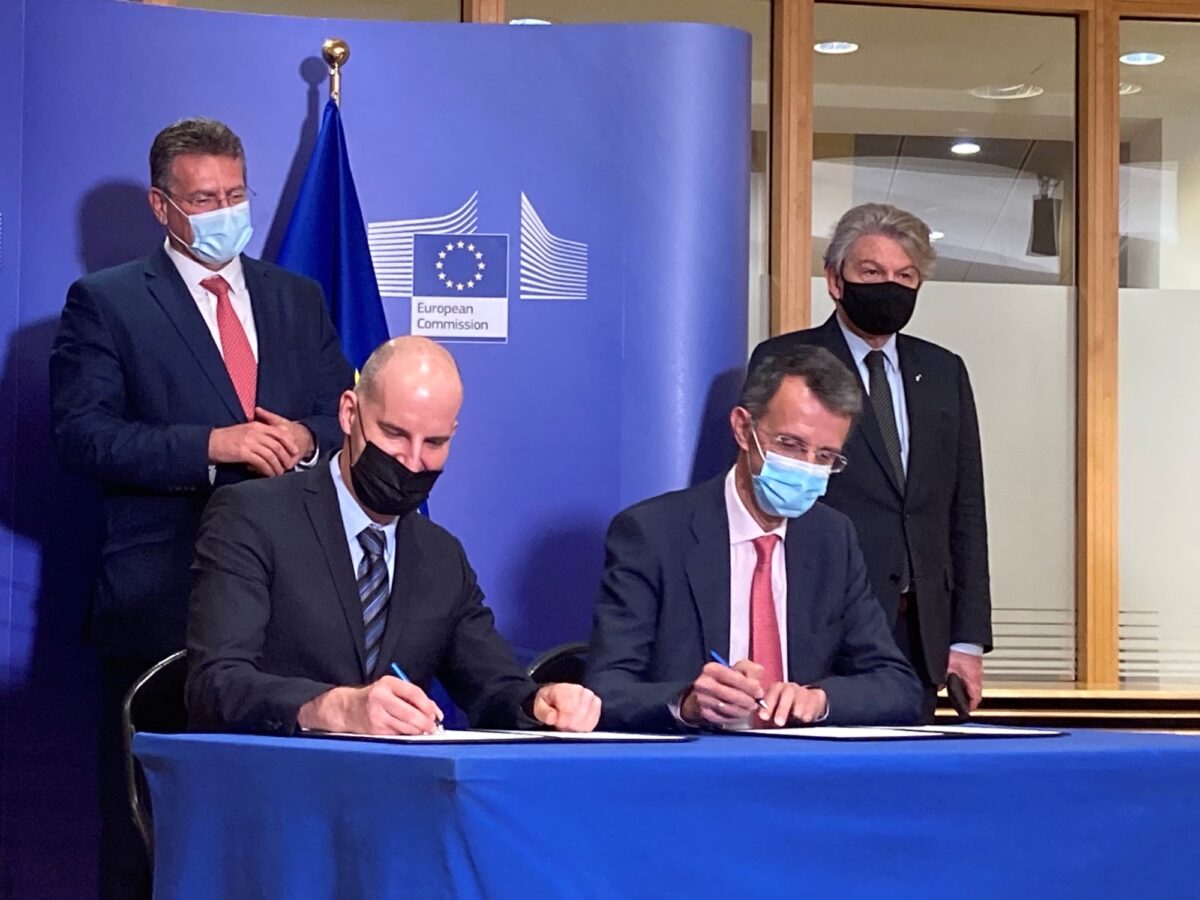
Feb 24, 2022
European Commission set to grant EIT InnoEnergy 10 million Euros to bridge growing skills gap across battery value chain
The European Commission is set to grant EIT InnoEnergy, the innovation engine for sustainable energy across Europe, 10 million Euros in funding towards the European Battery Alliance (EBA) Academy, following the signing of a Letter of Intent between the European Institute of Innovation & Technology (EIT), a body of the European Union, and EIT InnoEnergy. The EBA Academy, launched in 2021, is a flagship programme designed to reskill and upskill the workforce across the European battery value chain to stay ahead of the e-mobility curve.
The news is the latest marker in the European Commission’s commitment to continued investment into progressive sustainability initiatives, such as the EBA Academy, that ensure Europe maintains its leading role in driving the energy transition as e-mobility dramatically increases in scale. This is underlined by growing projects across the European battery value chain requiring approximately 800,000 workers to be trained, upskilled, or reskilled by 2025 to meet demand.
The EBA Academy provides an education and training ecosystem for businesses, convening the knowledge and experience of EIT InnoEnergy’s researchers, entrepreneurs, businesses, thought leaders, and key players from 18 different countries into a single, comprehensive learning service offering. The grant will accelerate the Academy’s expansion and outreach to provide scalable access to learning and development, from augmented reality programmes and online educational materials, to in-person bespoke workshops.
The signing of the Letter of Intent for the grant between Diego Pavia, CEO of EIT InnoEnergy and Martin Kern, Director of the EIT, took place in the margins of the Sixth High-Level Meeting of the EBA on the afternoon of 23 February, and in the presence of Maroš Šefčovič, European Commission Vice-President for Interinstitutional Relations and Foresight; Nicolas Schmit, European Commissioner for Jobs and Social Rights; and Thierry Breton, European Commissioner for Internal Market.
Three EU Member States, notably France, Spain and Hungary, have already expressed their intention to collaboratively roll out the EBA Academy’s high-quality training programmes.
Diego Pavia, CEO of EIT InnoEnergy, said: ‘We are very excited to formally launch the European Battery Academy, that will see thousands of industrial workers trained. To meet the demands of the rapidly growing European battery value chain, this ’fit for purpose’ industry-led approach is needed in the education and training sector since the volume; 800.000 workers, need to be upskilled and reskilled by 2025. Such a massive endeavour requires this boosted approach. EIT InnoEnergy, mandated since 2017 to lead the industrial stream of the European Battery Alliance, is operating the EBA Battery Academy.”
Commission Vice-President Maroš Šefčovič, in charge of the European Battery Alliance, commented: “In 2017, the EU battery industry was hardly on the map. Today, Europe is a global battery hotspot, with 20 Gigafactories emerging across our Member States. By 2030, we should be manufacturing enough batteries each year to power some 11 million electric cars, moving full steam ahead towards strategic autonomy in this crucial sector. But maintaining this European battery success story depends on our ability to face the most pressing challenges – critical raw materials and skills – head on, with a more systematic approach needed. It is also high time to adopt a new regulatory framework, ensuring that only the greenest, best performing and safest batteries make it onto the EU market.”
Agnès Pannier-Runacher, Minister Delegate for Industry, attached to the Minister of the Economy, Finance and the Recovery, who attended yesterday’s Sixth High-Level Meeting of the EBA, added: “I welcome today’s Sixth High-Level Meeting of the European Battery Alliance gathering Vice-President Šefčovič, commissioners Schmitt and Breton and the Member States participating in the Important Projects of Common European Interest (IPCEI). These discussions are crucial as we need to tackle together the challenge of securing raw materials, critical for the ecological transition, and skills, to develop our European industry.”
Find out more about the EBA Academy here.
More EBA250 news
InnoEnergy, the driving force behind the EBA250 initiative, introduces today its new brand identity,…
The new EU-funded facility will enhance global raw materials partnerships and access to Critical…
Last week, InnoEnergy and EBA250 represented the battery value chain in Brussels alongside Verkor…
ElevenEs, a European LFP lithium-ion battery manufacturer, has signed a Joint Development Agreement with…
The European battery industry has come a long way since the launch of the…
The 2024 Innovation Fund calls for proposals have been launched this week, with a…
Altris, a pioneering Swedish developer of sodium-ion battery technology, has reached significant milestones that…
Last Friday, Morrow Batteries officially inaugurated the first giga-scale LFP (Lithium Iron Phosphate) cell…
On May 24, 2024, the 8th High-Level Meeting of the European Battery Alliance (EBA)…
Following the recent announcement from EVP Šefčovič on the need to support manufacturing of…


